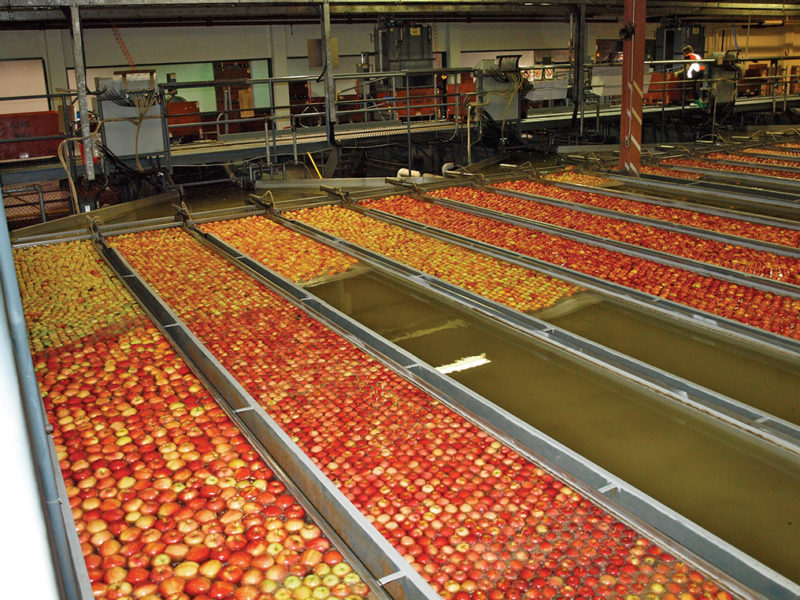KELOWNA – As the apples turn red across the Okanagan, Similkameen and Creston valleys and trucks start to move them to packinghouses, BC apple growers face their busiest time of year.
But the management team at BC Tree Fruits Cooperative, which sells more than $100 million worth of apples annually, is also busy. This year has seen CEO Warren Sarafinchan and board chair Steve Brown working to revitalize the financially challenged co-op and ensure its members receive higher returns.
“We are making progress on a number of key initiatives for the business,” says Sarafinchan. “We are monitoring the changes closely to make sure we are getting the expected results.”
A governance report released this past February called for a number of major changes to the structure and operating of the co-op’s board of directors and urged a focus on delivering high-quality fruit. Yet while members discuss and reflect on the report, with the aim of voting on its recommendations at an upcoming meeting, the management team continues to make changes to improve the financial situation of the business.
Corporate offices closed
The top priority is selling non-performing assets. BCTF shut its corporate offices in downtown Kelowna at the end of September and will sell the premises. Also on the block is the Osoyoos packing facility, which closed in fall 2017. The Keremeos and Summerland packing houses will continue to receive fruit, but storage is being consolidated at other facilities.
Packing lines at the Oliver and Winfield plants have been studied and investments have been made to reduce costs, a major marketing expense.
“Since shutdown in late spring we have studied our line technologies, processes and training protocols and made capital upgrades to facilities to not only lower the cost of packing, but to reduce the amount of fruit lost on the pack line,” says Sarafinchan.
While the BC Tree leaf brand is well known in Western Canada, Sarafinchan says diversification into other markets is important to deliver higher returns for growers. He points to connections he made on a trip to Asia in February as “helpful in the execution of our business plan.”
This year, BC Tree Fruits offered growers an incentive to encourage them to deliver top-quality fruit. The governance report identified the co-op’s former practice of accepting poor quality fruit and disposing of it as a loss for all members.
The co-op has developed an Apple Quality Assurance Program that sets out minimum pricing for growers who produce apples whose size, colour and ripeness command a premium.
“The objective is to encourage growers to manage their orchards as best they can through the summer, in anticipation that there will be a certain return in the fall,” explains Sarafinchan.
He believes that the program is having a positive effect.
“I am hearing examples from growers where the program has given them the confidence to make the investments to manage their orchards to produce high quality fruit to qualify for the pricing,” he says.
The governance report noted a lack of cooperation as a major impediment to the co-op’s progress.
“The board and membership is factionalized, often driven by personal agendas rather than business decisions,” the report stated.
Sarafinchan believes there is an opportunity for better working relationships among all stakeholders.
“There has got to be collaboration between those who represent the members [the board], the CEO, and the members, to be committed to working through the issues and getting to a place where the business is delivering the results for the members that it needs to,” he says.


 Meat producers frustrated by consultations
Meat producers frustrated by consultations